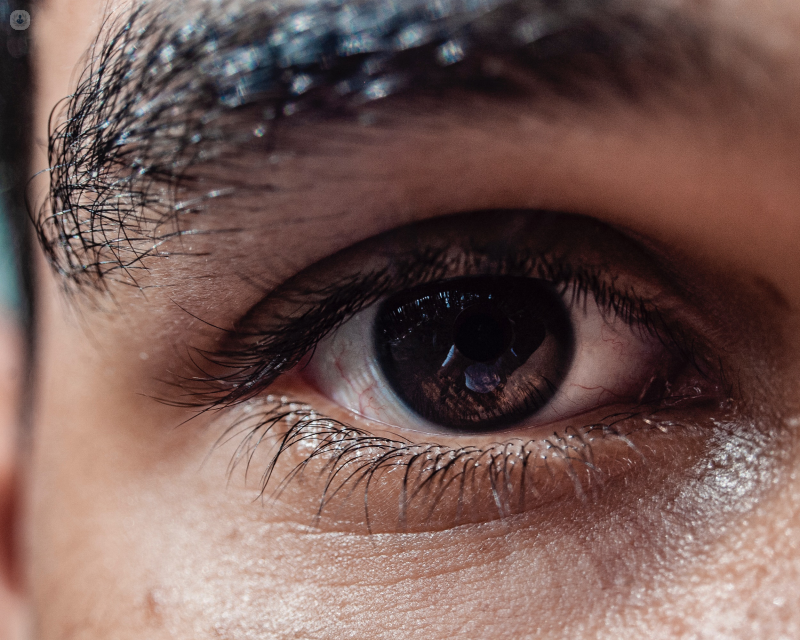Epiretinal membrane: vitrectomy as treatment
Escrito por:Epiretinal membranes most commonly affect people over 50 years of age. Recently we spoke with Mr Alistair Laidlaw, a leading consultant ophthalmologist, to find out what exactly epiretinal membranes are and when treatment may be necessary.

We found out how successful vitrectomies are and information about risks and potential complications of this life-changing surgery.
What is an epiretinal membrane?
The retina is the light sensitive membrane that lines the inside of the eye, it is akin to the film in a camera. The macula is the central part of the retina, it is the part that you use for reading and other visually detailed tasks.
An epiretinal membrane is a growth of scar tissue on the surface of the macula. Epiretinal membranes are common.
Are epiretinal membranes dangerous?
Contraction of the epiretinal membrane will result in the macular part of the retina being crumpled up. In turn, this can cause blurred and/or distorted vision, objects in the affected eye can appear to be the wrong size (usually bigger) or the wrong shape. The distorted vision can cause problems when both eyes are open, even though only one eye has an epiretinal membrane, the affected eye is often said to interfere with the other.
How are epiretinal membranes treated?
In most individuals an epiretinal membrane will remain stable, that is the vision does not progressively deteriorate. Treatment for epiretinal membranes is therefore usually performed on individuals who are troubled by the impaired vision in their affected eye. They will sometimes progress slowly and surgery can be done if that is the case.
Epiretinal membranes can usually be successfully treated with surgery. This is a day case operation which can be performed under local anaesthetic. As part of the operation, the jelly within the eye (the vitreous) is removed and the epiretinal membrane on the inner surface of the retina is peeled away.
Is cataract surgery also necessary for the treatment of epiretinal membranes?
People who undergo this type of surgery will usually develop a cataract if cataract surgery has not already been done. For this reason, cataract surgery is often offered prophylactically as part of the epiretinal membrane procedure.
What are the risks and benefits of surgery for epiretinal membranes?
Most people who are troubled by the visual problems arising from their epiretinal membrane are pleased that they have undergone surgery. The vision typically improves half to two thirds of the way back to normal. The improvement is not immediate, most people are aware that things are different a week or so after surgery, but the improvement will continue for a year or more. One important benefit from surgery is that the affected eye interferes less with the other eye and people have better vision with both eyes open.
As with any surgery there is a risk of complications, but these are fortunately rare with vitrectomy for epiretinal membranes. It is however important to be aware that there is a small but ever-present risk of worse vision or more surgery if you have an epiretinal membrane operation.
In a minority of cases a gas bubble has to be inserted into the eye as part of the operation. That gas bubble typically absorbs over a few weeks (between three and six weeks). There are some important limitations on your activity with a gas bubble in the eye, in particular you cannot fly, drive or have a general anaesthetic without informing the anaesthetist that there is a gas bubble in your eye.
Most people who undergo epiretinal membrane surgery are pleased that they have had it done. The procedure usually works, the vision is usually better as a result and the process is not that bad to go through.
If you wish to discuss your eye health and treatment options, you may like to book an appointment with a leading consultant ophthalmologist such as Mr Alistair Laidlaw. You can book an appointment with him via his Top Doctors profile.


